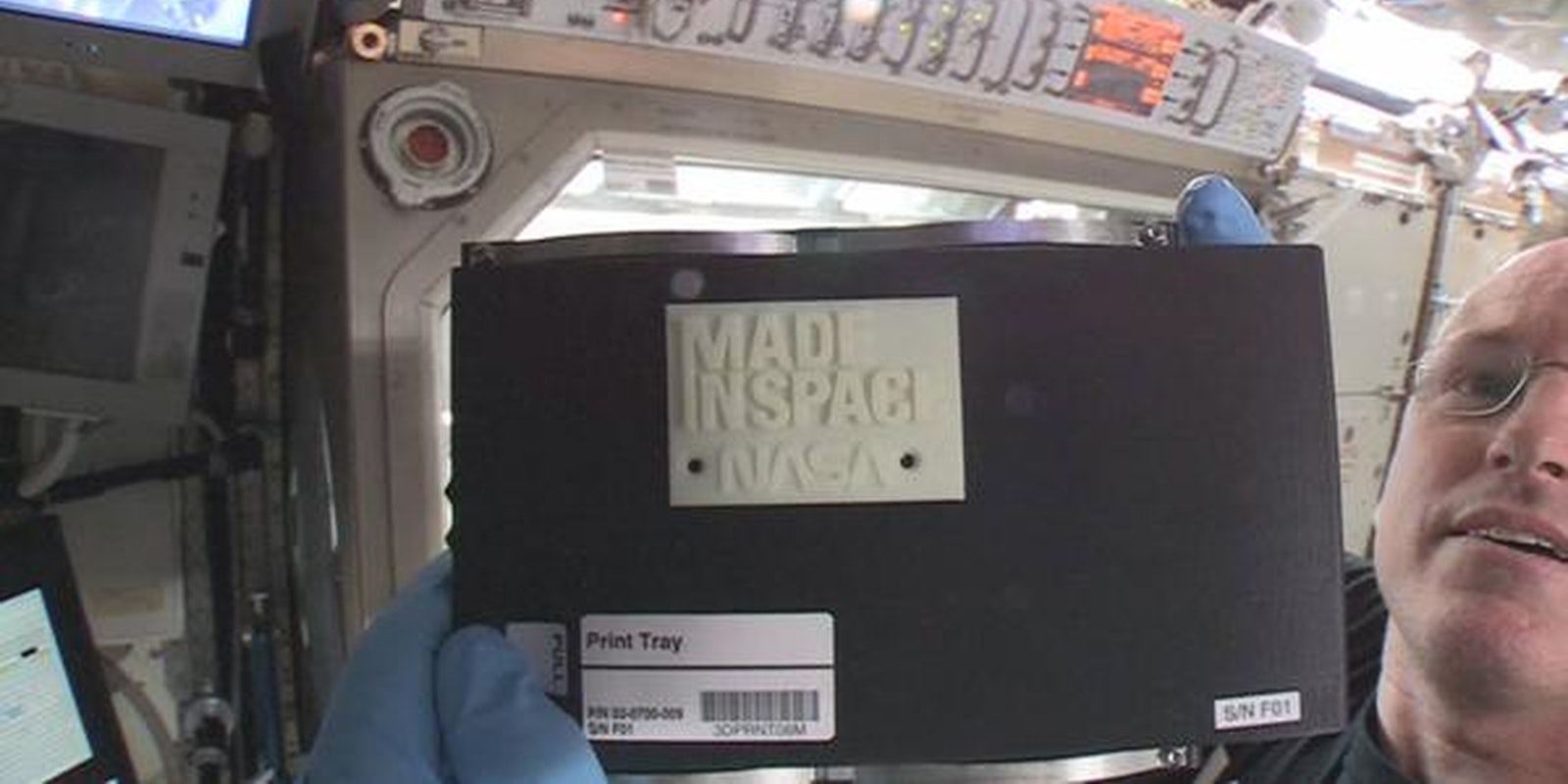Humans have already accomplished a lot in the final frontier. We’ve landed a man on the moon, sent a rover to explore Mars, and even landed a probe on an a comet. Now, we’re creating our own tools in space, thanks to a 3D printer.
NASA previously announced its intentions to send a 3D printer to space back in September, with the parts arriving on the International Space Station earlier this month. NASA astronaut Barry “Butch” Wilmore installed the machine, and after a few tests, he created their first 3D printed object Monday afternoon.
First print removed from printer! Many, many more to come! pic.twitter.com/iEZ0HJ82SZ
— Michael Snyder (@SpaceSnyder) November 25, 2014
This is definitely going in the scrapbook! pic.twitter.com/lAdIxsRHaf
— NASA3DPrinter (@NASA3DPrinter) November 26, 2014
Now what did the little 3D Printer That Could create? The astronauts went the logical route and made some spare parts for the printer itself.
Made In Space CEO Aaron Kemmer, who runs the company behind the 3D printer in space, wrote a blog post in which he praised the team behind the project. For him, it was a four-year effort formed with a belief that humans could ultimately expand beyond living on planet Earth.
“Though objects have been previously created in space there has never been true, sustained manufacturing there,” Kemmer wrote. “Years of testing and development taught us how challenging an environment space would be for additive manufacturing.”
Creating spare parts may not be exciting for some, but for those living on the ISS, it may be crucial for them to maintain the printer and even create parts when something breaks when no new rockets will be sent up there for awhile.
My first selfie! pic.twitter.com/HQ6iIOZXTp
— NASA3DPrinter (@NASA3DPrinter) November 19, 2014
I was made for space! pic.twitter.com/bPHHPLdSC8
— NASA3DPrinter (@NASA3DPrinter) November 26, 2014
“We chose this part to print first because, after all, if we are going to have 3D printers make spare and replacement parts for critical items in space, we have to be able to make spare parts for the printers,” Niki Werkheiser, project manager for the ISS’s 3D printer, said. “If a printer is critical for explorers, it must be capable of replicating its own parts, so that it can keep working during longer journeys to places like Mars or an asteroid. Ultimately, one day, a printer may even be able to print another printer.”
The objects printed by the 3D printer will return to Earth in 2015 so that scientists can analyze them and compare them to 3D printed objects created on Earth.
Photo via NASA3DPrinter/Twitter


